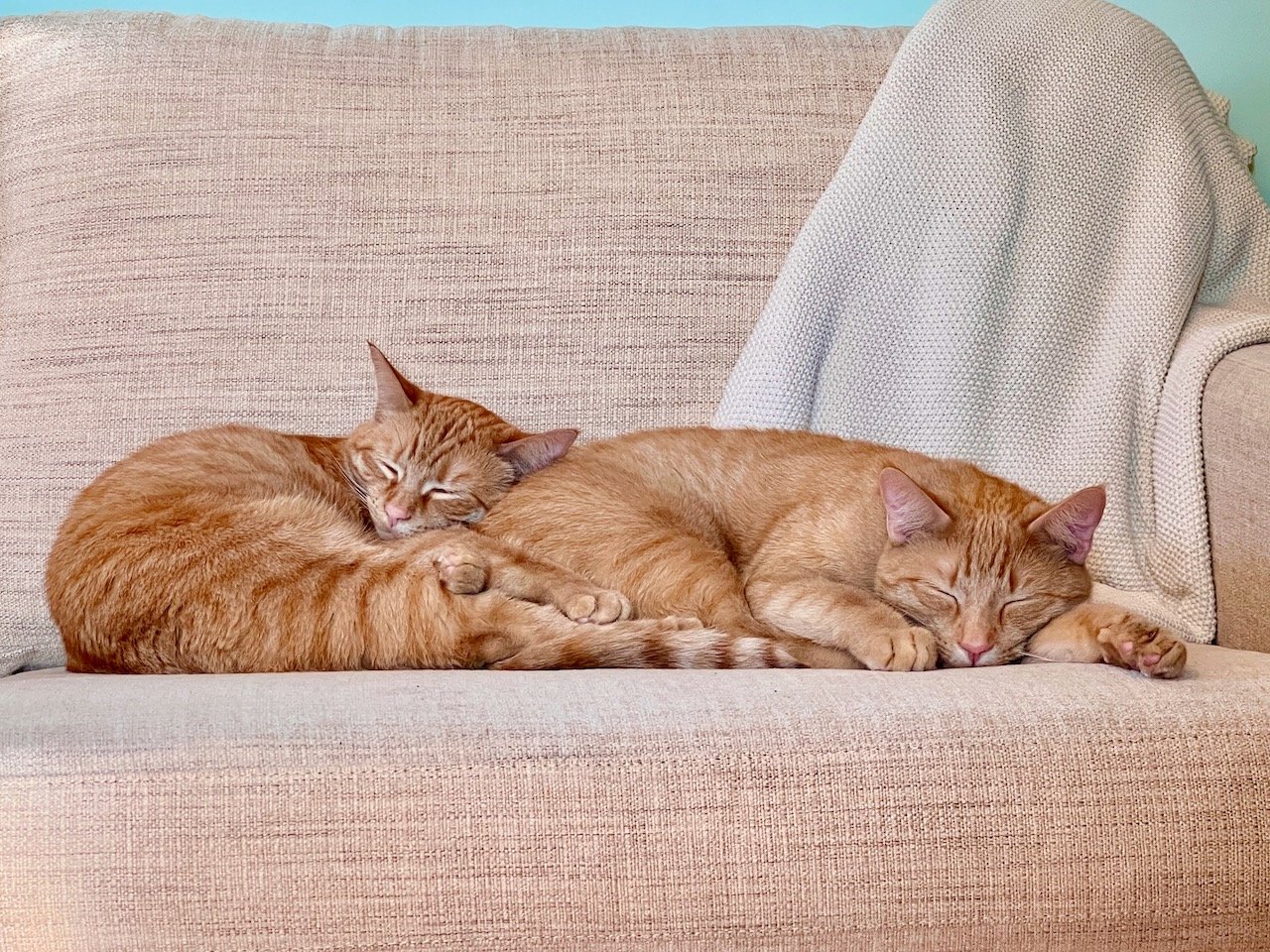Expectations, Outcomes, and Cats
I have found that practice makes my keynote delivery much better. I’m a rehearser. I rehearse my keynote before each address up to eight times. Doing this takes a lot of time, but the results are worth it.
To get in enough repetitions, I start rehearsing the week before each event, so rehearsals begin in my home office, and my audience is often our two ginger cats, Bean and Robin (Bean and Robin are named after Muppets, which is the tradition in our household.)
Bean and Robin are very loving and interactive as cats go, but they couldn’t give a hoot about my career. Sometimes, during a rehearsal, they will briefly open their eyes to watch my arm movements, and I note their completely unimpressed facial expressions, but mostly they snooze. My excitement for the topic doesn’t inspire them one little iota.
Having an audience as difficult as Robin and Bean is good for me. I get my bombing done and out of the way every week, so when I’m in front of a real audience, every laugh, knowing sigh and appreciative clap seems like a gift. In their own little disinterested way, my at-home audience resets my expectations in a super helpful way.
We form inevitable expectations when we pour our time, ideas, and emotional energy into a new project. We hope people will like it, and secretly we hope they love it. We hope our audience will enjoy the message. Secretly, we hope they leave and tell everyone they know. We hope enough people will come, and secretly we hope the concept is so wildly great everyone will be clamoring to attend.
Often, especially at first, the outcome doesn’t match our expectations (and certainly not our secret expectations.) It could be that people don’t understand the idea because we are not yet articulating it well. It could be that the execution is just not that good yet. It could be that the experience or value needs some tweaks to make it truly exceptional. Perhaps this new project will become great. It is just not great, or even that good, yet (yet is the operative word.)
I have seen many organizations stop a new initiative before it got off the ground because expectations didn’t match reality, and they assumed the idea wouldn’t work.
Perhaps the idea might work; it just hasn’t worked yet and might need more time, experimenting, repetitions, and reflection. In the meantime, we can rein in our expectations so we don’t inadvertently scuttle a new project too quickly. Might I suggest offering it first to the most challenging audience ever—your cats!

